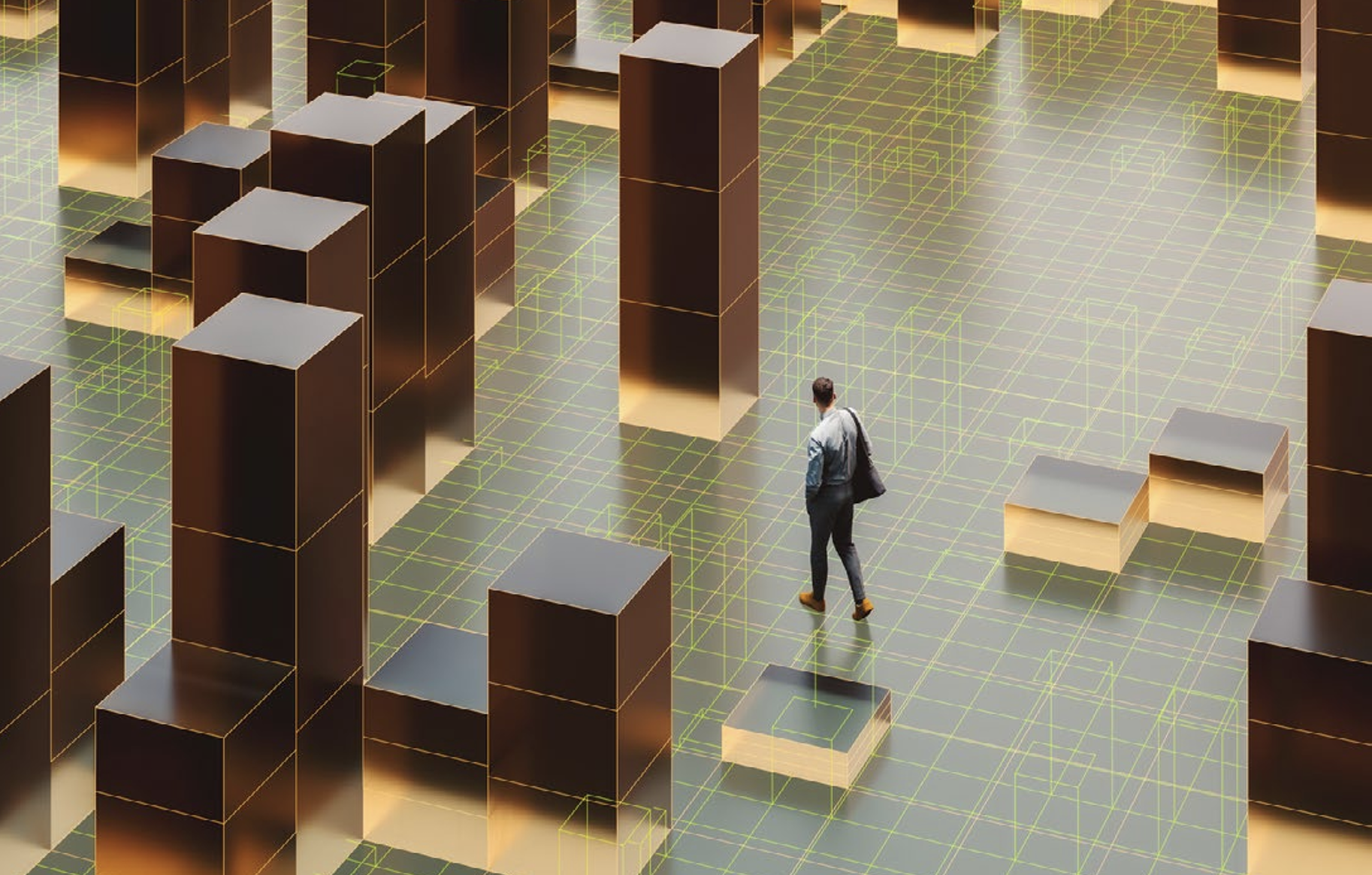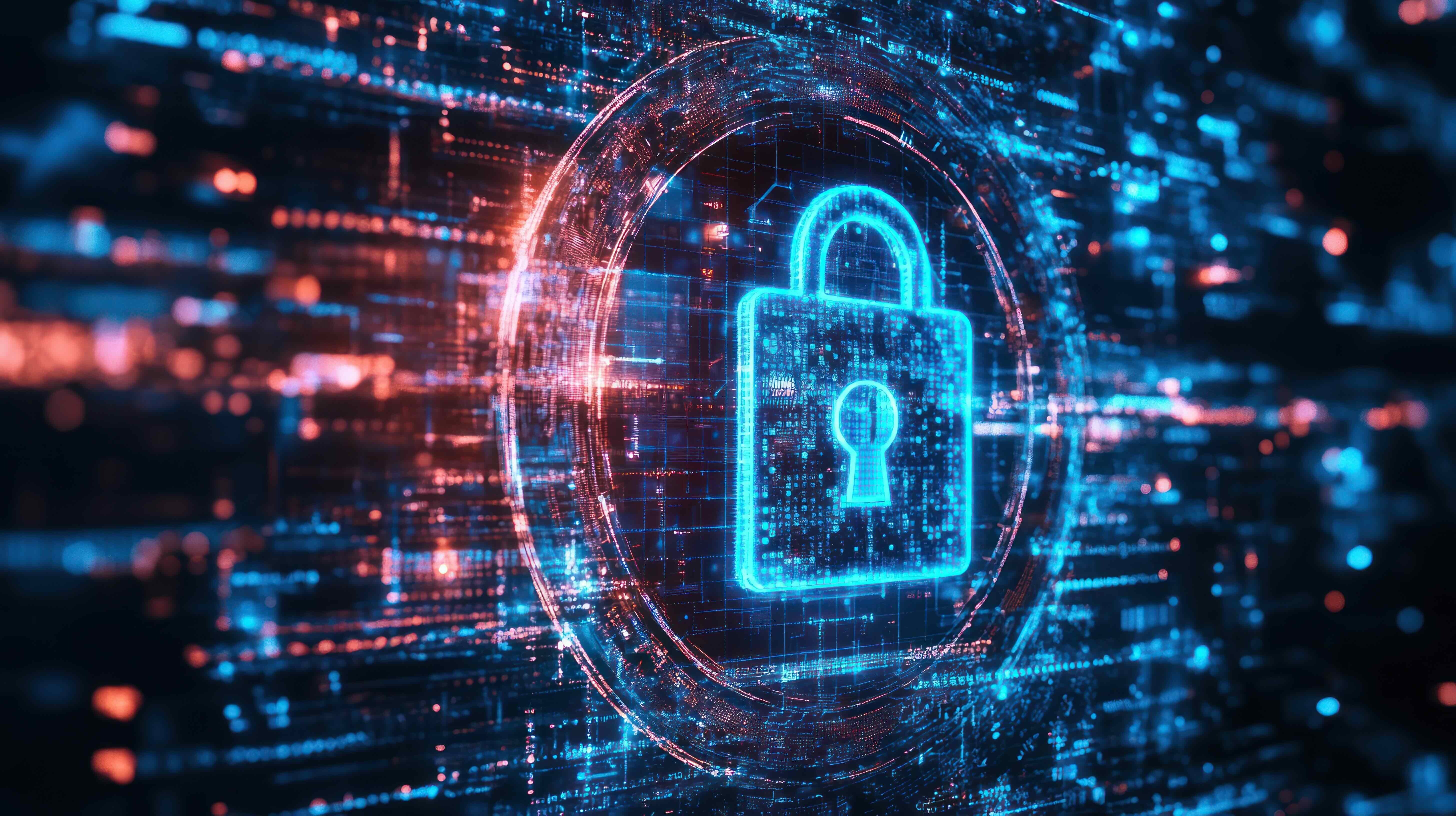4 ways AI can help us enter a new age of cybersecurity

In an age of hypercomplexity and interconnected systems, AI will be essential for robust cybersecurity. Image: Getty Images/iStockphoto
Listen to the article
• AI is helping companies recover from the pandemic more efficiently.
• The growing uptake of AI is causing concern for data security in a time of escalating cyberthreats.
• Well-deployed AI can be used to counter these cybersecurity threats.
Global catastrophes have historically brought moments of truth for all fields of business. In such times, their inner workings, strengths and weaknesses are laid bare for the whole world to see, as organizations rapidly alter their processes to come to terms with the new reality.
Businesses that can make bold moves during such challenging times can quickly turn the misfortune into a benefit. So early indications are that businesses that value information as a currency, and have been quick to adapt machine learning and advanced data analytics, have emerged better from the economic aftermath of the pandemic.
AI and business optimization
The coronavirus pandemic that continues to ravage the world has forced small businesses into building online ventures. It has also compelled them to adopt AI-enabled platforms that offer consumer insights and help enterprises to deliver “hyper-personalized” products to online buyers.
Additionally, AI has so far helped companies that are struggling to create safe and contagion-free work environments by setting up on-demand online labour forces.
In a business context, AI has the potential to perform automated, repetitive tasks that would otherwise have been left for humans. It helps improve efficiency, reduces cost and saves time that could be invested in other business functions.
However, AI requires massive amounts of data to learn about consumer trends, predict consumer behaviour and find the "next best action" to enhance customer satisfaction and boost sales. But this predictive intelligence can also foresee demand and supply behaviours and help in quality control processes in manufacturing facilities.
The trouble is that gathering and storing this data securely while safeguarding the interests of your stakeholders is no easy task. In the age of digital transformation, where everything is interconnected and shared online, internet of things (IoT) security poses a significant risk for users.
In recent years, there has been a dramatic increase – 15% to 21%, according to various estimates – in security breaches. Leading platforms such as Facebook, Twitter, and Yahoo have become victims, compromising millions of dollars’ worth of users' data.
This does not only mean people must set better passwords, but also mandates that these platforms have higher standards for cybersecurity. Since data science and AI will be shaping the next stages of IoT development, data-rich companies must create efficient and trustworthy approaches to turn data into useful and actionable insights.
Cybersecurity in the age of AI
Data collection and AI algorithms are becoming the cornerstone of the cybersecurity industry. Automated decision-making and evaluation processes provide a wider range of protection from malicious activity than legacy solutions. For instance, AI can be proactive and monitor devices for suspicious activity, instead of relying on slowly updated malware databases.
Gartner, one of the world’s leading research and IT companies, predicted that 60% of digital businesses could suffer major losses due to the inability of their security teams to manage digital risks.
After the high-profile security breaches of the past two years, businesses are becoming more aware of risk-management techniques. In fact, 79% of global executives of companies rank cybersecurity risk management as one of their top priorities.
Most CISOs have actively started to make transformations in their security and IT culture by dispersing security responsibility throughout the organization. Therefore, AI developments in cybersecurity should emphasize on making systems safer and more secure for consumers to use. Let's take a look at how to do this right:
1. Identify threats early
Combine conventional threat intelligence (a list of all known cyberthreats to date) and use machine learning to understand risks. This should result in a better, more efficient system of threat detection and prevention.
This can also help to identify any loophole or threat present in the data.
In fact, machine learning can also be used to spot any abnormality or potential vulnerability in the midst of “normal” activity and warn users of a threat before it could compromise essential data. With the right systems in place, your hackers won't even realize that you know of their presence, so you can take immediate measures to ensure the safety of your digital infrastructure.
2. Prevent credit-card fraud
Unusual activity, such as purchases made from a different device or unusual transactions, can be instantly detected using AI-powered services that help verify the credit-card holder.
Machine learning can also help users choose passwords by warning them if a password is not safe enough.
3. Build on the blockchain
In recent years, cryptocurrencies like Bitcoin and Ethereum have been rising in popularity. These cryptocurrencies are built upon blockchain, an innovative technical solution to store a secure, decentralized record of transactions.
Blockchain can be used to enable medical records and help in security management by identifying criminal identity loopholes in the system.
With blockchain technology, verification keys wouldn't be required anymore. If someone tries to hack the data, the system analyzes the whole mass of data chains. Even if one data node is left uninterrupted by the hacker, the entire system can be restored successfully.
This makes the entire system far more secure, ensuring that there is no discrete way of tampering with blocks in the chain, and the stored data can remain safe.
4. Go deep into the data
One of the main areas where AI can help cybersecurity is by responding to threats almost immediately. For example, in 2016 Google listed around 20,000 sites for having malware within their system. While humans can't scrutinize millions of websites, machine learning can. It is possible to use relevant AI solutions to analyze every visit to the site, categorize visitors based on their threat level, and deal with them accordingly.
We are entering an era of hypercomplexity, where all of our information is interconnected. Even though artificial intelligence can bring immense innovations and developments, it would be at the cost of sacrificing vast amounts of personal data and cybersecurity incidents.
How is the Forum tackling global cybersecurity challenges?
The only way to protect data and reduce risk is to automate and regulate the security process using intelligent algorithms to identify, learn, and understand potential threats.
Don't miss any update on this topic
Create a free account and access your personalized content collection with our latest publications and analyses.
License and Republishing
World Economic Forum articles may be republished in accordance with the Creative Commons Attribution-NonCommercial-NoDerivatives 4.0 International Public License, and in accordance with our Terms of Use.
The views expressed in this article are those of the author alone and not the World Economic Forum.
Stay up to date:
Cybersecurity
Related topics:
Forum Stories newsletter
Bringing you weekly curated insights and analysis on the global issues that matter.
More on CybersecuritySee all
Julie Iskow and Kim Huffman
November 11, 2025






